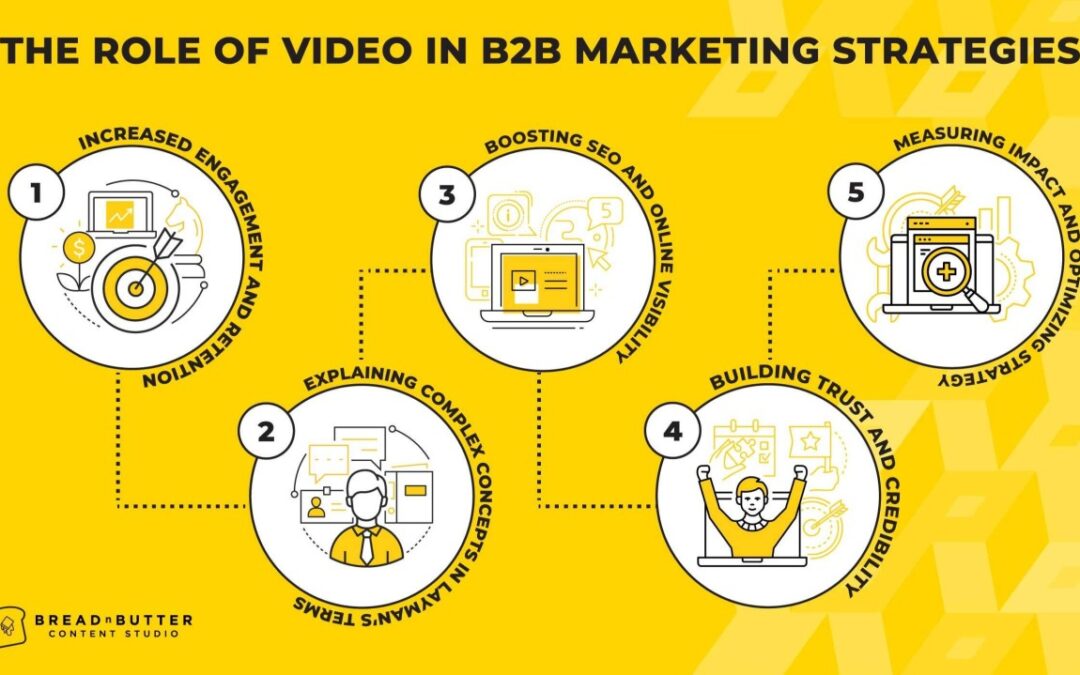In the quickly changing world of B2B marketing, video has become a potent tool for engaging customers, building brand awareness, and driving business growth. As businesses continue to seek new ways to connect with key decision-makers and effectively communicate their value propositions, video has become an integral component of any comprehensive marketing strategy. Take a closer look at why video is so vital to B2B marketing.
1. Increased Engagement and Retention
One of the most compelling reasons to incorporate video into B2B marketing is its ability to capture and hold attention. Research suggests that people are 52% more likely to share video content than any other type of content. Videos, especially short-form videos under 60 seconds, can effectively communicate complex ideas, making them more likely to be remembered and shared.
2. Explaining Complex Concepts in Layman’s Terms
B2B products and services are often technical and complicated, requiring detailed explanations to convey their full value. Video is an excellent medium for breaking down your product into easily digestible formats. Through videos like animated explainer videos, product demons, and case studies, B2B businesses can successfully communicate their products in a way that is both informative and engaging. This helps potential clients understand the benefits and applications of a product or service.
3. Boosting SEO and Online Visibility
Video content can be a powerful tool in search engine optimization (SEO). Search engines favor web pages with rich, diverse content, and video can help improve rankings by increasing time spent on a page. Videos are more likely to be shared on social media platforms, extending a brand’s reach and driving more traffic to its website. Businesses that regularly produce high-quality video content are more likely to appear in search results, enhancing their online visibility and authority.
4. Building Trust and Credibility
What separates you from your competition? Video can be that extra factor that humanizes your brand and differentiates you from your competitors. Trust is a critical factor in B2B relationships, where transactions are high-value and long-term. Video content, especially testimonials and case studies, can play a significant role in building credibility. Featuring satisfied clients discussing their positive experiences can provide social proof, reinforcing the trustworthiness of a business. You can also use videos to showcase the expertise and thought leadership of your team to further build your reputation in your industry. In this brand video Bread ‘N Butter created for Novelis, the video helps build trust and credibility amongst potential customers and stakeholders by showcasing Novelis’ sustainability mission in action.
5. Measuring Impact and Optimizing Strategy
One of the key advantages of video is the wealth of metrics available with video. Analytics tools can provide detailed insights into how videos are being consumed. Go beyond views–you can now examine drop-off rates, demographics, and conversion metrics. This data allows marketers to synthesize and refine their video strategies, tailoring content for maximum impact. By understanding what resonates with their audience, businesses can create more effective videos that drive results.
